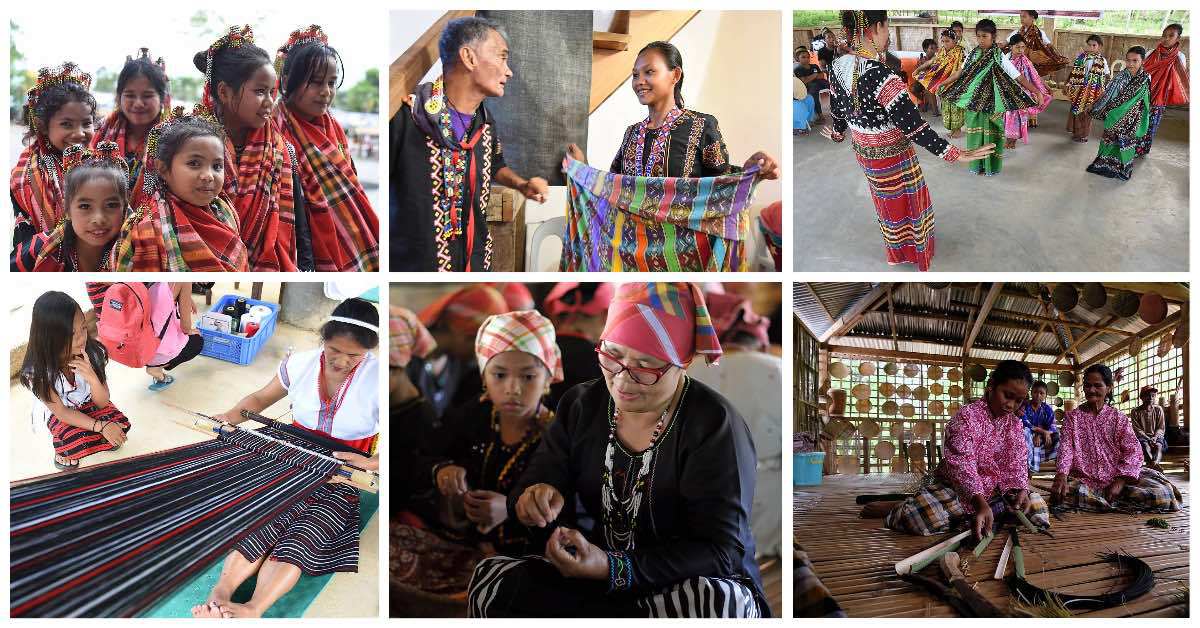
The communities-based School of Living Traditions in the Philippines is now inscribed on the United Nations Educational, Scientific, and Cultural Organization (UNESCO) Register of Good Safeguarding Practices in recognition of its goal to preserve Filipino indigenous tradition and culture to the youth.
The inclusion of the SLT in the Register of Good Safeguarding Practices recognizes its successful safeguarding experiences and examples of transmission of living heritage, practices, and knowledge to the future generation.
UNESCO selected the program for inscription on its list during the 16th Session of the Intergovernmental Committee for the Safeguarding of Intangible Cultural Heritage (ICH) conducted virtually in December 2021.
An SLT is an informal, community-managed learning center in the Philippines where a living master or culture bearer teaches skills and techniques of doing a traditional art or craft. It is a flagship program of the National Commission for Culture and the Arts (NCCA) dedicated to safeguarding and supporting the continued practice and passing on to the younger members of the community the indigenous and folk traditions, skills, and knowledge of Filipino communities.
The mode of teaching is usually non-formal, oral, and practical demonstrations. The site may be the house of the living master, a community social hall, or a center constructed for the purpose.
In the Philippines, 28 SLTs are currently being implemented across the three major island clusters:
Luzon:
Benguet, Ifugao, Abra, Mountain Province, Kalinga, Bulacan, Nueva Vizcaya, Quezon, Palawan, Rizal
Visayas:
Aklan, Iloilo, Negros Occidental, Bohol, Capiz, Antique, Guimaras
Mindanao:
Agusan del Sur, South Cotabato, Davao Occidental, Basilan, Davao City, Davao del Norte, Bukidnon, Zamboanga del Sur, Davao Oriental, Davao del Sur, and North Cotabato.
The SLT is the Philippines’ fifth element to be inscribed on the Lists of Intangible Cultural Heritage, following the Hudhud chants of the Ifugao, the Darangen epic of the Maranao people of Lake Lanao, the Tugging rituals and games, and the Buklog – the thanksgiving ritual system of the Subanen.
UNESCO has also hailed Cebu as a Creative City of Design and Albay province as one of the 20 additions in the protected World Network of Biosphere Reserves.
SEND CHEERS in the comments below to the Philippines’ National Commission for Culture and the Arts (NCCA) for protecting Filipino indigenous tradition and culture through its flagship program the School of Living Traditions (SLT) which is now inscribed on the United Nations Educational, Scientific, and Cultural Organization (UNESCO) Register of Good Safeguarding Practices.
TELL US your good news story tips by messaging GoodNewsPilipinas.com on Facebook, Twitter, Instagram, or e-mail editor@goodnewspilipinas.com and WATCH Good News Pilipinas TV YouTube for more Filipino Pride stories!
The post UNESCO recognizes community schools preserving Filipino indigenous traditions appeared first on Good News Pilipinas.
Source: Good News Pilipinas
0 Comments